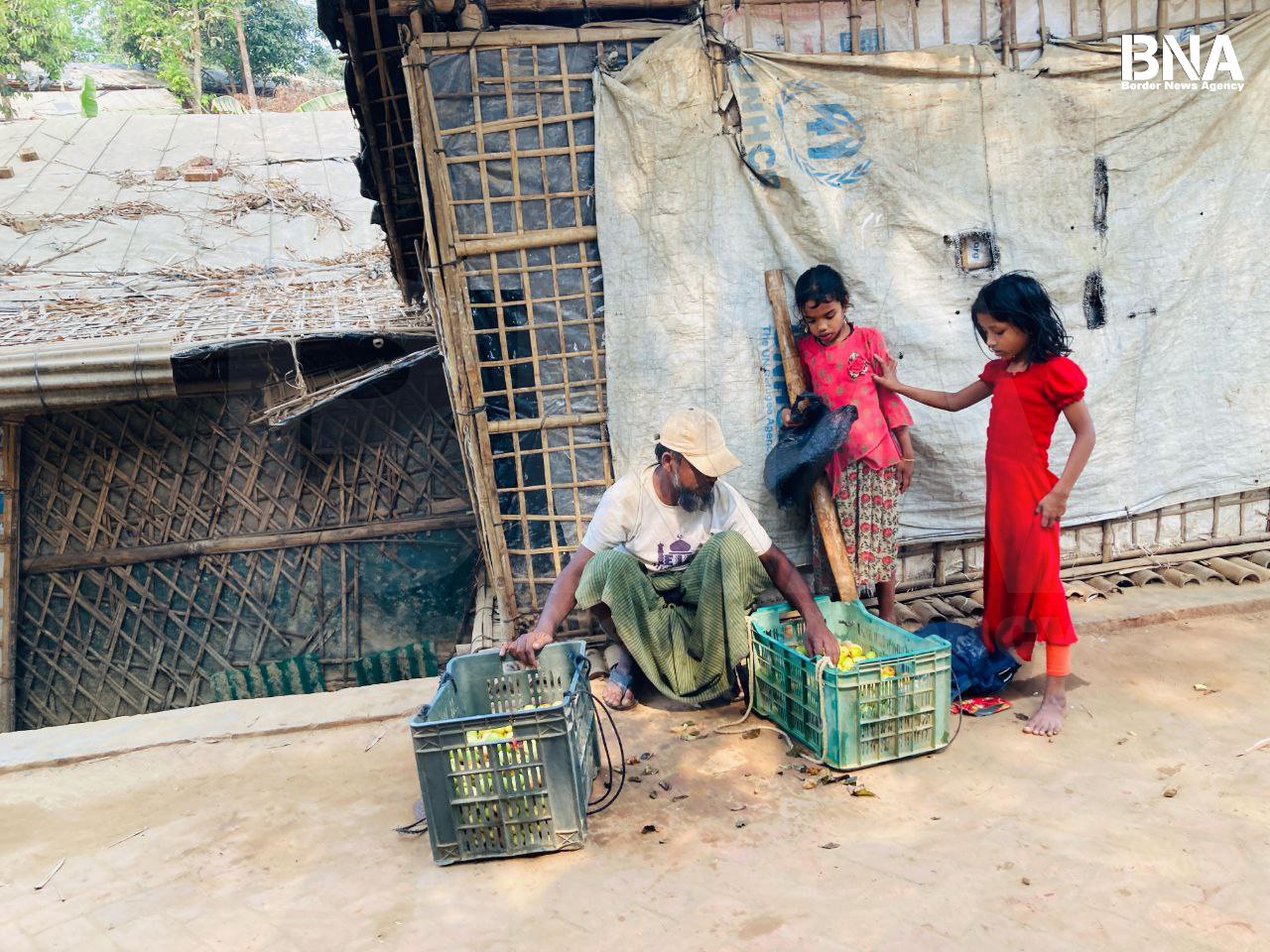As the holy month of Ramadan approaches, many Rohingya refugee children in the overcrowded camps of Cox’s Bazar are seen selling religious items such as prayer caps, attar (perfume spray), misbaha (prayer beads), and traditional clothing.
Instead of attending school or preparing for Ramadan with their families, these young children roam the streets and makeshift markets, trying to earn a small income to support their families.
For these children, business is not a choice it is a necessity for survival. The worsening economic situation in the camps, coupled with the ongoing reduction in food rations and lack of livelihood opportunities, has forced many Rohingya children to take up small businesses instead of pursuing an education.
A Childhood Lost to Struggle
Thousands of Rohingya children in the refugee camps are growing up without access to formal education.
Many schools in the camps offer only basic literacy and numeracy, but even those opportunities are limited. As a result, many children are left with no choice but to work to help their families survive.
One of these children is 12-year-old Jamal, who walks through the crowded camp alleys carrying a small basket filled with prayer caps and perfume. “I wake up early every morning and go out to sell these items,” he says.
“If I don’t sell enough, my family won’t have food to eat. I wish I could go to school, but we need money.”
Similarly, 10-year-old Fatima sits near a busy footpath in the camp, arranging her small stock of prayer beads and attar bottles on a piece of cloth.
“I see other children studying in books, but I don’t have that chance,” she says.
“My father is sick, and my mother cannot work, so I must help.”
The stories of Jamal and Fatima are just two among thousands of Rohingya children whose dreams of education and a better future are slipping away due to the harsh realities of refugee life.
The Struggles of the Rohingya Refugee Community
The Rohingya people have faced decades of marginalization and persecution in Myanmar, culminating in a mass exodus in 2017 when over 700,000 Rohingya fled violence and military crackdowns in Rakhine State.
Today, more than a million Rohingya refugees live in the crowded camps of Cox’s Bazar, surviving on humanitarian aid and limited resources.
However, conditions in the camps have worsened due to funding shortages. In recent years, food rations have been significantly reduced, making it even harder for families to provide for their basic needs. With no legal right to work, adults struggle to earn a livelihood, leaving many families in extreme poverty.
In such dire conditions, children are often sent to work instead of going to school. Some sell small items, while others help in tea stalls, collect firewood, or engage in other forms of child labor. The lack of proper education and economic opportunities means that many Rohingya children are growing up without hope for a better future.
The Need for Urgent Action
Human rights organizations, refugee leaders, and international agencies have repeatedly called for stronger support to address the Rohingya crisis. They emphasize that education is a fundamental right and that every child deserves access to learning and development opportunities. Without proper education, an entire generation of Rohingya children will remain trapped in poverty, unable to break free from the cycle of suffering.
“The world must not forget the Rohingya children,” says a local teacher in the camp. “If we do not provide them with education, skills, and hope, they will remain vulnerable to exploitation, trafficking, and further suffering.”
With Ramadan being a time of charity and compassion, humanitarian organizations and donors are being urged to increase their support for Rohingya refugees, particularly children.
Education programs, vocational training, and economic opportunities must be expanded to ensure that these children are not forced into labor at such a young age.
Hope for a Brighter Future
Despite the difficulties they face, many Rohingya children still hold on to hope. “I want to be a doctor,” says 11-year-old Salim, who sells clothes at a small shop with his uncle. “I see people getting sick, and I want to help them. But I don’t know if I will ever get the chance to study.”
His words highlight the resilience and dreams of many Rohingya children. However, without urgent action, their hopes will remain just dreams. The world must act now to provide them with education, security, and a path toward a brighter future.
For now, as Ramadan begins, Rohingya children continue to sell prayer caps and perfumes in the camp alleys not because they want to, but because they have no other choice.






